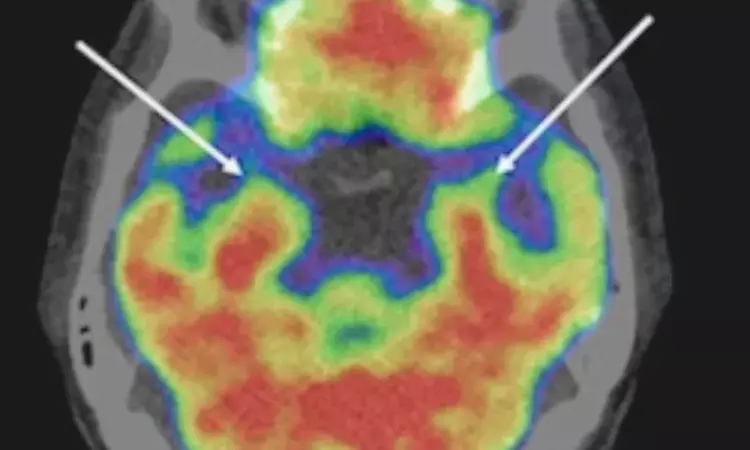- Home
- Medical news & Guidelines
- Anesthesiology
- Cardiology and CTVS
- Critical Care
- Dentistry
- Dermatology
- Diabetes and Endocrinology
- ENT
- Gastroenterology
- Medicine
- Nephrology
- Neurology
- Obstretics-Gynaecology
- Oncology
- Ophthalmology
- Orthopaedics
- Pediatrics-Neonatology
- Psychiatry
- Pulmonology
- Radiology
- Surgery
- Urology
- Laboratory Medicine
- Diet
- Nursing
- Paramedical
- Physiotherapy
- Health news
- Fact Check
- Bone Health Fact Check
- Brain Health Fact Check
- Cancer Related Fact Check
- Child Care Fact Check
- Dental and oral health fact check
- Diabetes and metabolic health fact check
- Diet and Nutrition Fact Check
- Eye and ENT Care Fact Check
- Fitness fact check
- Gut health fact check
- Heart health fact check
- Kidney health fact check
- Medical education fact check
- Men's health fact check
- Respiratory fact check
- Skin and hair care fact check
- Vaccine and Immunization fact check
- Women's health fact check
- AYUSH
- State News
- Andaman and Nicobar Islands
- Andhra Pradesh
- Arunachal Pradesh
- Assam
- Bihar
- Chandigarh
- Chattisgarh
- Dadra and Nagar Haveli
- Daman and Diu
- Delhi
- Goa
- Gujarat
- Haryana
- Himachal Pradesh
- Jammu & Kashmir
- Jharkhand
- Karnataka
- Kerala
- Ladakh
- Lakshadweep
- Madhya Pradesh
- Maharashtra
- Manipur
- Meghalaya
- Mizoram
- Nagaland
- Odisha
- Puducherry
- Punjab
- Rajasthan
- Sikkim
- Tamil Nadu
- Telangana
- Tripura
- Uttar Pradesh
- Uttrakhand
- West Bengal
- Medical Education
- Industry
Chronic Stress May Drive Lymph Node Metastasis in Postmenopausal Endometrial Cancer, Study Finds

South Korea: A study published on November 18 in Scientific Reports suggests that brain activity linked to chronic stress may influence the aggressiveness of tumors in women with endometrial cancer. Using PET imaging, researchers analyzed 161 women and found that high amygdala activity (AmygA) was associated with lymph node (LN) metastasis in postmenopausal patients but not in premenopausal patients.
Lead authors Ki-Jin Ryu, MD, PhD, and Sungeun Kim, MD, PhD, from the Korea University College of Medicine in Seoul, highlighted that the study provides new insights into the connection between chronic stress, as indicated by AmygA, and LN metastasis in endometrial cancer patients, particularly in postmenopausal women.
While numerous studies have shown that chronic stress can increase the risk and aggressiveness of tumors in cancers like stomach, lung, and skin cancer, the connection between chronic stress and endometrial cancer remains unclear. To further explore connections, the researchers aimed to investigate the relationship between AmygA and lymph node metastasis in patients with endometrial cancer.
For this purpose, the researchers recruited a total of 161 patients with newly diagnosed endometrial cancer who underwent preoperative 18F-FDG PET/CT scans. AmygA was calculated by dividing the maximum standardized uptake value (SUVmax) of the amygdala by the mean standardized uptake value (SUVmean) of the temporal lobe.
The study led to the following findings:
- Postmenopausal patients with positive LN metastasis showed elevated AmygA levels and increased systemic inflammation markers, such as spleen and bone marrow SUVmax, compared to those without LN metastasis.
- AmygA was independently associated with LN metastasis in postmenopausal patients but not in premenopausal patients.
- The correlation between AmygA and systemic inflammation markers was more pronounced in postmenopausal patients.
"The lack of a significant link between AmygA and LN metastasis in premenopausal women suggests that menopausal status may influence how stress-related neural activity affects cancer progression," the researchers noted.
While further studies are needed to understand the underlying mechanisms, the findings emphasize the importance of considering menopausal status when assessing stress's impact on cancer progression.
The researchers also suggested that AmygA could be a useful imaging biomarker for identifying patients at higher risk of LN metastasis, particularly in postmenopausal women.
This study has several limitations, including its single-center design, small sample size, and cross-sectional nature, which may introduce bias. The unbalanced lymph node metastasis in premenopausal patients could affect results. The limited resolution of 18F-FDG PET/CT restricted the assessment of stress-related brain regions, and a whole-body scan protocol prevented a more detailed amygdala analysis. Additionally, the researchers couldn't directly evaluate markers of the HPA axis and sympathetic nervous system activity.
Reference:
Ryu, K., Kim, S., Joung, C., Lee, S., Park, H., Song, J. Y., Pahk, K. J., & Pahk, K. (2024). Association between chronic stress-related amygdala metabolic activity and lymph node metastasis in endometrial cancer. Scientific Reports, 14(1), 1-11. https://doi.org/10.1038/s41598-024-79987-8
Dr Kamal Kant Kohli-MBBS, DTCD- a chest specialist with more than 30 years of practice and a flair for writing clinical articles, Dr Kamal Kant Kohli joined Medical Dialogues as a Chief Editor of Medical News. Besides writing articles, as an editor, he proofreads and verifies all the medical content published on Medical Dialogues including those coming from journals, studies,medical conferences,guidelines etc. Email: drkohli@medicaldialogues.in. Contact no. 011-43720751


